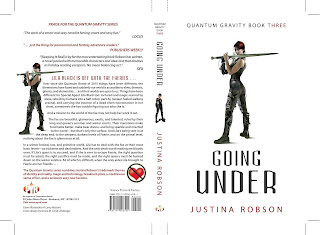An Interview with Robert Silverberg (by Jacinta Meyers)
 Son of Man
Son of Manis a tour de force, a very powerful and provocative futuristic narrative that was first published in the early 1970s. There is much to be said of the influences and themes in it from that time period. I know I’ve discussed the sort of “new age” science fiction with Lou Anders, and this book could certainly be described in that category. The philosophy, history, sociology, and psychology woven into this book make it such a unique and intriguing gem.
The end of the 1960s was characterized by hippy and peace movements, free love, and racial and class struggles. I can see something of that in this book. I know that it ends with a Bible verse and certainly has a title with certain connotations, but reading this I was reminded of something out of Dante or of Joseph Heller’s Catch-22 when Yossarian is entering Rome through successively alienated images and events. There was something of magical realism in this novel also, which is well suited to science fiction. Was it challenging to portray an alien Earth so far into the unforeseeable future?
Mr. Silverberg: It’s always a challenge to invent a far-future world. But this was a challenge I was glad to accept, because it allowed me such freedom of invention.
Was there a pattern in your conceptions about how humanity, or any other species for that matter, would evolve? Where did your chief inspirations come from?
Mr. Silverberg: I had no pattern in mind in the evolutionary conceptions. The book was intended as a dreamlike vision, a surreal portrait of the future, not as a scientific text. One of my chief inspirations was a book called A Voyage to Arcturusby David Lindsay, which has some of the same emphasis on color and free imagination. But mainly the imagery came from my own dreams. I found that I was actually dreaming scenes from the book each night; I jotted them down when I awoke and wrote them later in the day.
People have always been intrigued by the fact that man seems to be the only thinking, sentient creature in the universe. However, in the distant future of Son of Man, mankind shares its sentience with seemingly innumerous different creatures. I took this to be the quality of humanity shared by everyone. In many ways, this seems like part of an ideal vision for Earth. Do you think this is a possible concept, evolutionarily speaking, or was it merely a vehicle of symbolism?
Mr. Silverberg: Most of those creatures are, in the novel, described as direct descendants of man – our gene pool undergoing vast diversion over the eons to come. My intentions were literary, but I also think it’s a very possible concept: despite today’s current anti-scientific attitudes toward genetic manipulation, we are destined to see such vast changes in the physical form of the human race in the next five thousand years (let alone a couple of billlion!) that we would not be able to recognize our descendants as human.
Sex is still of some importance, mentally, emotionally, and symbolically in this future world. But there are exceedingly few instances of procreation; I recall the young of the ferret creature in the wild part of the underground city. The Skimmers, Interceders, Eaters, and so forth, all seem immortal (or at least capable of living long past our concepts of mortality). Is procreation something that has been lost by the sons of men?
Mr. Silverberg: Some sort of reproduction is probably still going on, since even long-lived people like those in my book are not truly immortal. But the normal life-span has become so long that procreation is minimal, just enough to continue the species.
The descriptions were exceedingly beautiful. In many places, you captured the tragedy of loss. I am thinking of the moments when Clay is mourning the triumphs of his species and how utterly they have vanished with time. Are these the things that you, as an accomplished author, feel are mankind’s greatest achievements?
Mr. Silverberg: Yes.
You have a long and illustrious career. Has the process and subject matter of writing changed for you over the years? Have your interests changed?
Mr. Silverberg: Not as much as one might think. The process of writing became much slower for me as the years went along, but my interests remain quite consistent.
Is there anything new coming up that we should look for on bookshelves soon?
Mr. Silverberg: I haven’t written a new novel in some years. I do have a pair of short stories coming up in anthologies edited by George R. R. Martin and Gardner Dozois.
John Picacio produced the cover artwork for this Pyr edition of Son of Man. We thought it suited the book well. How do you like it?
Mr. Silverberg: Very handsome. He’s a splendid artist.
I have heard many people say we are living in a strange age now. Son of Man is as relevant as ever for this reason. Do you have any words of wisdom to impart to sci-fi readers at this point in time?
Mr. Silverberg: No. Whatever wisdom I have available is to be found in my novels.
Thank you so much for participating in this interview, Mr. Silverberg! We appreciate the wonderful insight into the writer’s mind.
For more information on Robert Silverberg and this book, Son of Man, visit the Pyr page. Interview conducted by Jacinta Meyers.
An Interview with Robert Silverberg (by Jacinta Meyers) Read More »





